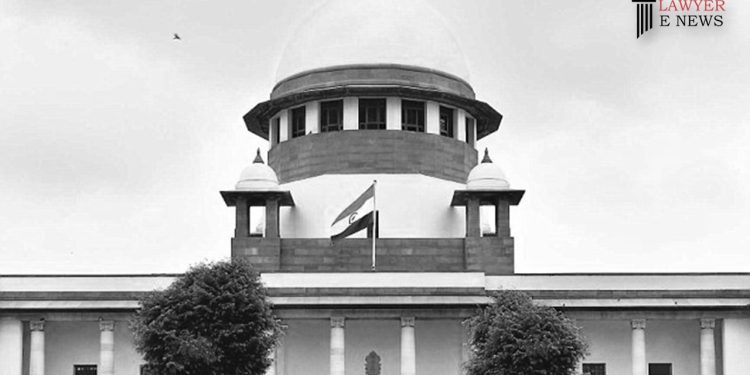Supreme Court Sets Uniform Sentencing Standard in Landmark Judgment on Disparity in Sentences

On 03 July 2023, In a significant judgment, the Supreme Court of India has addressed the issue of disparity in sentences and established a uniform sentencing standard. The bench comprising Justices S. Ravindra Bhat and Dipankar Datta delivered the judgment in the case of Uggarsain v. The State of Haryana & Ors., Criminal Appeal No(s). 1378-1379 of 2019.
The case involved the conversion of the appellant’s conviction from Section 302 of the Indian Penal Code (IPC) to Section 304 Part II IPC by the High Court of Punjab and Haryana. The appellant, Uggarsain, had appealed against the conversion of conviction and reduction of sentence. The prosecution had alleged that Uggarsain and others were involved in a violent attack that resulted in the death of the deceased, Subhash.
The trial court had convicted all the accused persons and imposed varying sentences. However, the High Court partially allowed the appeals, reducing the conviction to Section 304 Part II IPC. This led to widely different and disparate outcomes in terms of the sentences imposed on the accused.
The Supreme Court, while addressing the issue of disparity in sentences, emphasized the principle of proportionality in sentencing. The court referred to previous judgments, including Ahmed Hussein Vali Mohammed Saiyed v. State of Gujarat, Jameel v. State of U. P., Guru Basavaraj v. State of Karnataka, and others, which highlighted the importance of imposing appropriate and proportionate punishments based on the nature of the offense, circumstances of its commission, and other relevant factors.
The court observed that the sentencing in this case was flawed and arbitrary, with no rationale for the wide disparity in the sentences imposed on the accused. It held that the appropriate sentence, considering the totality of circumstances, would be five years of rigorous imprisonment. However, it took into account the fact that some of the accused had already served sentences longer than five years and left their sentences undisturbed.
The Supreme Court’s judgment establishes a uniform sentencing standard and highlights the need for proportionate sentences in criminal cases. It underscores that sentencing should be based on the gravity of the offense and relevant factors, ensuring fairness and justice in the criminal justice system.
This landmark judgment is expected to have a significant impact on future sentencing decisions, promoting consistency and fairness in the imposition of sentences.
The court’s decision in Uggarsain v. The State of Haryana & Ors. Serves as an important precedent for addressing disparities in sentencing and upholding the principle of proportionality in criminal law.
Date of Decision: July 3, 2023
UGGARSAIN vs THE STATE OF HARYANA & ORS.






